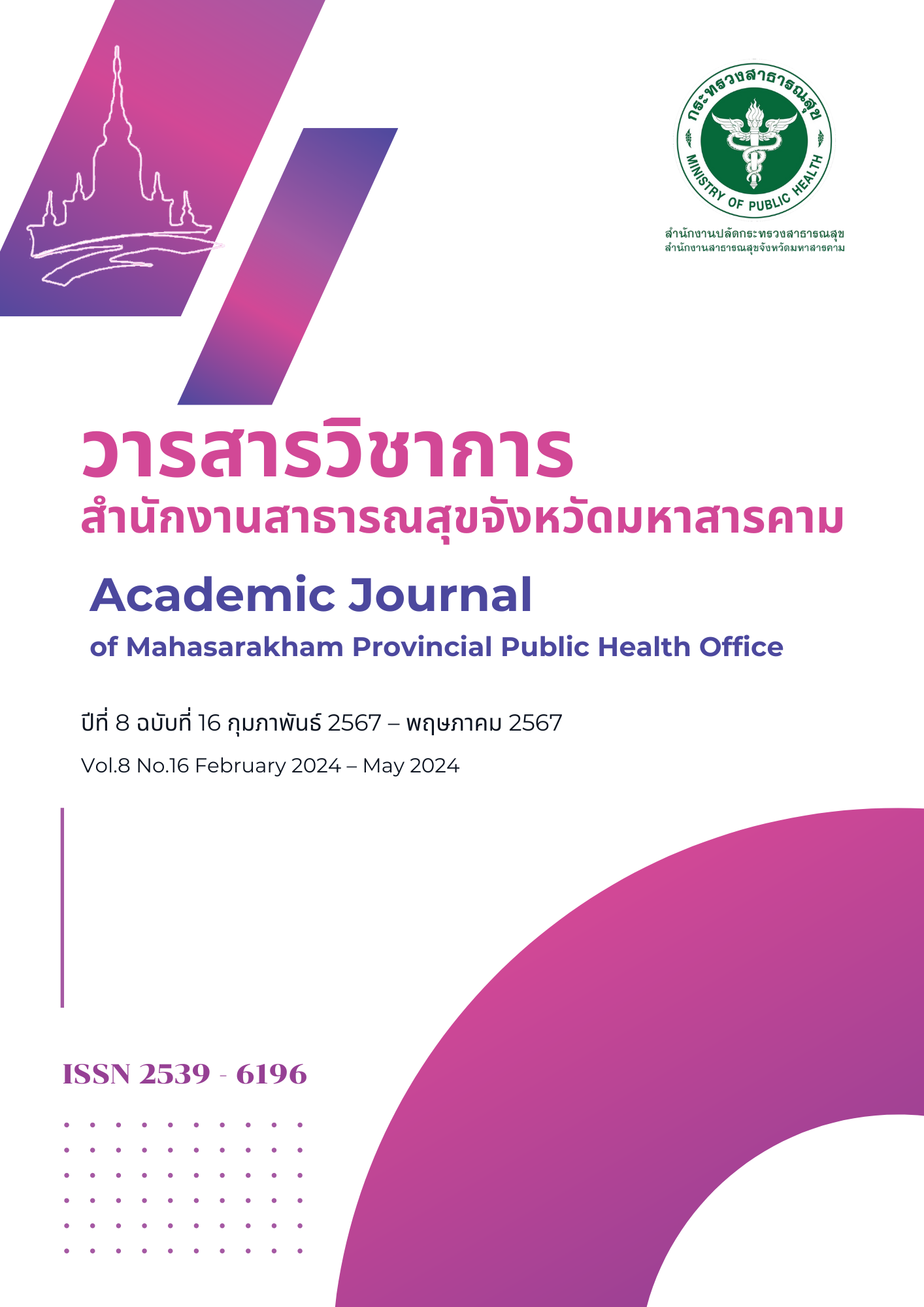The Effectiveness of Nursing Care for Femoral Artery Hemostasis with Mechanical Compression Device in Patient Undergoing Coronary Artery Angiogram at Trang Hospital : A Pilot Study
Abstract
Abstract
This study aimed to measure the effectiveness of nurse-manual approach for femoral artery hemostasis and use of a mechanical compression device in patients undergoing coronary artery angiogram. A quasi-experimental study utilizing a one-group posttest design along with a cohort study, was conducted from August 1, 2020 to October 31, 2020. The total sample size consisted of 27 participants. The instruments applied included: 1) demographic data and history of illness, 2) history of coronary artery angiogram procedure, and 3) records of outcomes related to nursing intervention for femoral artery hemostasis using a mechanical compression device. Descriptive statistics were employed to analyze the collected data. The results demonstrated a success rate of 59.3% (n = 16) for nursing interventions aimed at achieving femoral artery hemostasis using a mechanical compression device in patients undergoing coronary artery angiograms within 25 minutes. Additionally, the prevalence of vascular complications within 24 hours after implementing the nursing intervention showed no complications in 55.4% (n = 15) of case, while 44.6% experienced vascular complications. In conclusions, the findings could be applied to enhance nursing guidelines for interventions aimed at achieving femoral artery hemostasis with a mechanical compression device in patient undergoing coronary artery angiograms. The demonstrated safety and absence of complication support the use of the intervention. Moreover, the findings suggest the importance of predicting and monitoring potential complications to effectively prepare for and prevent adverse outcomes.
Keywords : femoral artery hemostasis, mechanical compression device, coronary artery angiogram, femoral artery sheath


